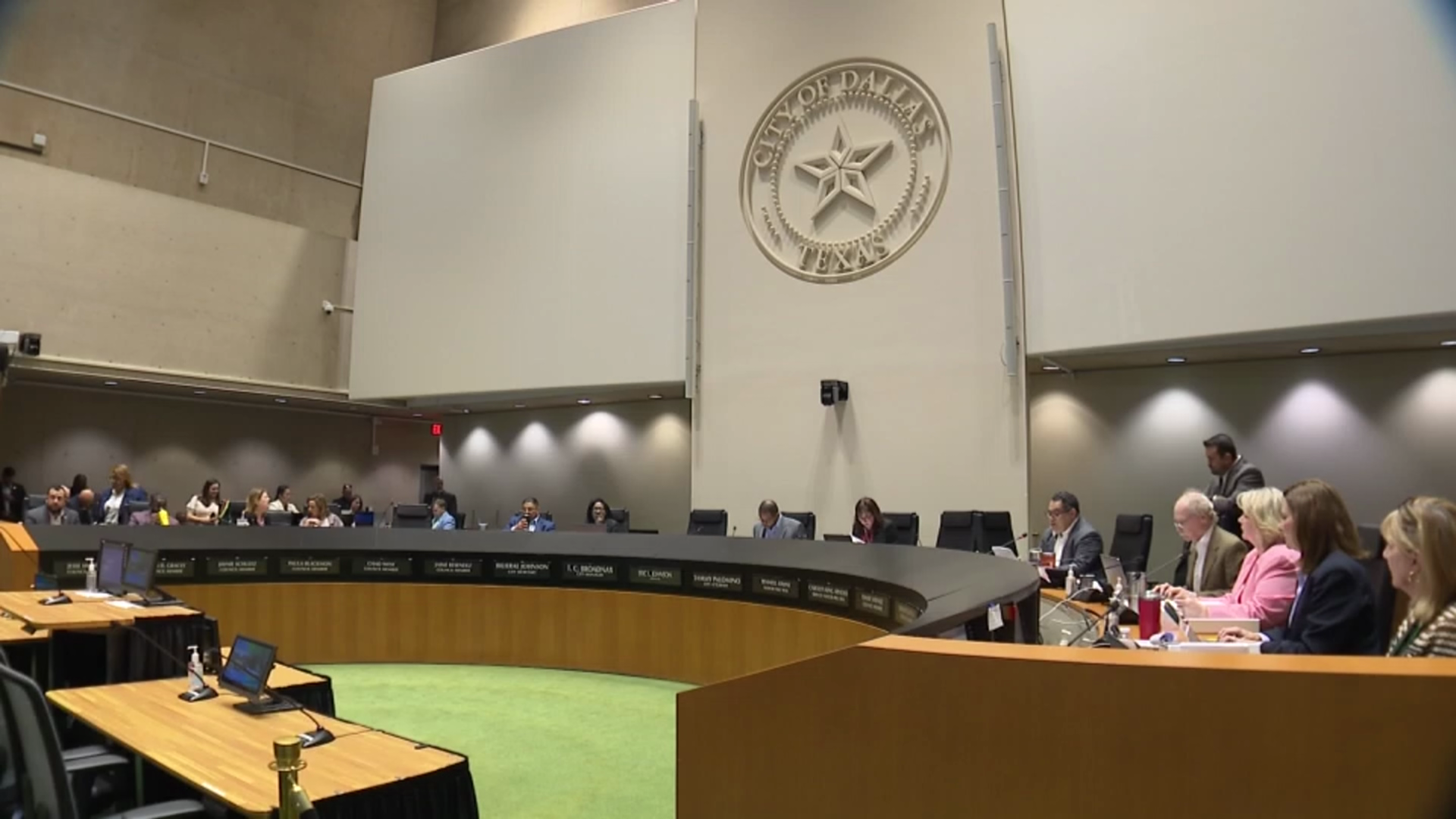If you look at just one recent day, in one local county, you can see a snapshot of a numbers nightmare involving hundreds of thousands of Texas COVID-19 test results the state has reported weeks or months late.
On September 1, Dallas County reported 622 COVID-19 cases. But 167 of those cases were from previous months. In fact, 101 were patients who tested positive in May. But, the Texas Department of State Health Services (DSHS) did not notify Dallas County of those cases until September, four months late.
It’s a situation that’s played out daily or weekly recently in local counties where some officials have become increasingly frustrated with the state’s delayed data dumps. In Collin County, commissioners even voted to post a warning on their website saying the county had “no confidence” in the data the state was providing.
NBC 5 Investigates has learned the troubles stem from a state computer system that was overdue for an upgrade when the pandemic struck.
In fact, upgrades began only after the system was failing to process hundreds of thousands of test results. Officials have since scrambled to make fixes and have hired consultants to sort out the data mess.
NBC 5 Investigates
Uncover. Reveal. Expose.
Some doctors fear, even if the problems are fixed, the damage has already been done as the public may lose confidence in the COVID-19 data the state reports.
“It erodes public trust. And we can't afford to erode the public trust right now. We need to be putting information in front of people that is transparent and reliable and timely”, said Dr. James McDeavitt, SVP and Dean of Clinical Affairs at Baylor College of Medicine.
McDeavitt said the data is critical to hospitals, businesses, schools and government officials making decisions about re-opening and is critical to accurately calculating the testing positivity rates that many decision-makers rely on to gauge the prevalence of infection in local communities.
The Texas DSHS confirms it has already reported more than 508,000 COVID-19 lab reports weeks or months late. Some were positive COVID-19 tests and some were negative results.
So how did the troubles begin?
Jump back to June when COVID-19 case count began to spike in Texas. As infections soared and more people rushed to get tested, the number of daily lab reports coming into the state was greater than the DSHS computer system could handle.
The system known as “NEDSS”, because it’s part of the National Electronic Disease Surveillance System, helps the health department electronically gather test results from health care providers and then disseminate that information to local county health departments.
In a 2018 funding request to the state legislature, DSHS said, "the (NEDSS) system and its components are at risk"
The department wrote that NEDSS had "limited server space" and that "the result is public health is delayed in receiving laboratory reports".
"As NEDSS continues to deteriorate, these delays will worsen”, the DSHS request said.
The legislature approved funding for upgrades to the system in 2019. But the upgrade plans were still in the works when the pandemic hit, a process DSHS accelerated rapidly this summer.
On August 1 the agency made an upgrade that allowed the system to begin accepting at least 100,000 lab reports per day. Then the system could begin processing the backlog of older lab reports, including many positive tests.
But that wasn’t the only problem.
DSHS reached out to some health care companies to say that thousands of lab reports needed to be re-submitted in some cases due to other errors.
“It’s been frustrating”, said Dr. Sam Bagchi, EVP and Chief Clinical Officer at Christus Health, which operates hospitals and clinics across Texas and other states.
Bagchi said the DSHS notified Christus it would need to re-send 95,000 lab reports and the DSHS computer system had not been counting any of those positive or negative results.
“And they said, well, you know, you've been sending us this data every day. But because it wasn't perfected the way we want it, we need you to send it all over again because of their system”, Bagchi said.
The problem in some cases, Bagchi said, was if one detail was missing, like whether a patient lived in a nursing home, or the patient's ethnicity wasn't recorded, or if there was an extra space or character in a single data field -- the system would toss out the entire case. It would not record the most important information: the positive or negative test result.
“It could have had a logic that said this is not an important aspect. This is nice to have, but it's not a must-have. If it's blank we'll go ahead and accept the result because we have important information, including the test result itself”, Bagchi told NBC 5 Investigates.
DSHS said Christus was also sending lab reports to the state in a less preferred format which compounded the issues. Bagchi said his company asked DSHS for assistance with converting to their preferred format even prior to the pandemic, but the agency was not able to assist.
“They are genuinely working hard to fix these issues, I just don't know that they have the resources, bandwidth or technology to do the job that is needed”, Bagchi said.
Christus was not the only company to have issues, the state notified one large lab company it needed to re-submit 354,000 test results.
Issues an earlier state computer upgrade may have avoided.
“Hopefully on a federal, state and local level, that will be one of the areas that we choose to invest in the future” said Baylor College of Medicine’s McDeavitt.
So have the delays in reporting kept the public from seeing the true picture of COVID-19 infection rates? The state health department told NBC5 Investigates the July peak of COVID-19 cases was actually somewhat higher than first reported.
But the agency says: "The additional cases that were identified by older test results added into the lab reporting system last month did not change the overall trend or recommendations to the public"
DSHS said it normally spends months reviewing data before making it public and that, “This rapid collection and dissemination of data is unprecedented for public health."
In the last few weeks, the agency hired a consultant to help sort out the data issues, including issues with 46 more labs that have been testing but have been unable to send results to the state electronically.
*Map locations are approximate, central locations for the city and are not meant to indicate where actual infected people live.



